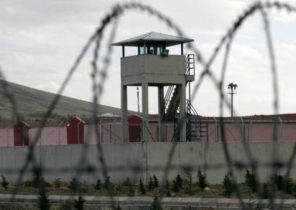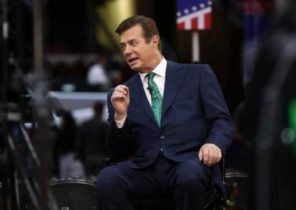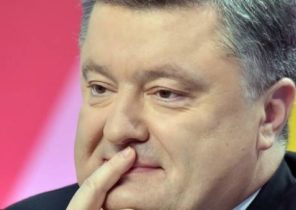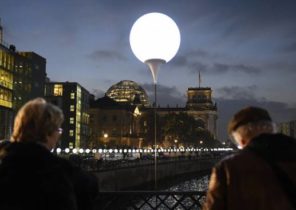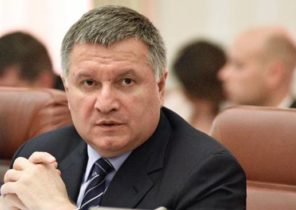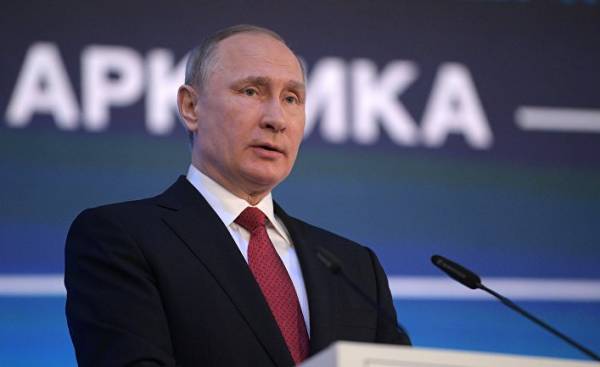
In Arkhangelsk hosted the international Arctic forum in 2017. In an interview with RFI, a French-American expert on the economy of the Arctic Mika Mered told, how Russia is developing the region, a military presence has a special significance, as Western sanctions have affected the region and how it will change U.S. policy in the Arctic with the arrival of Donald trump.
RFI: does Russia’s policy of militarization of the Arctic, or trying to diversify the economic activities in this region? What, in your opinion, the main purpose of this forum?
Mika Mered: His task — to show the world, in particular the various investors and the international community that Russia is ready to make a serious effort to developing their part of the Arctic. But is it possible, therefore, to say that the Russian Arctic again today militarised? Yes and no. The fact that the state as the Soviet Union, and earlier Russia today — in most cases, must give their consent to any projects of investment in infrastructure. And method of implementation of infrastructure projects, adopted in Russia, especially in the Arctic regions, — government investments in military facilities because it is the most effective and fastest way to provide the area with infrastructure.
With this in mind, for Russia, the following question is relevant: do I have to wait for the arrival of foreign risk capital in this area? Basically we are talking about capital of the Asian, which in itself already creates for Russia some problems of geo-economic nature. One of them is the growing influence of Asian countries, primarily China, in the Russian Arctic. A second problem is that as soon as possible to develop the region because the inventory of exported natural resources, especially oil, in the South of Russia are being depleted and to look for new because these resources constitute a significant part of export revenues of Russia.
— However, according to the Russian press covering the forum state is not ready to spend more money on the Arctic: according to the latest estimates (2015 — approx. RFI), required costs, estimated at about 250 billion rubles, but today, even this amount the state budget can not afford, although the construction of a new nuclear-powered icebreaker of money will not regret. Is this still a sign that Moscow is primarily interested in the military aspect?
— State investment comes through the military sphere. This has two explanations: ensuring efficiency and control. It is possible to conclude that there is a militarization? Yes and no — my answer here is the same as in the previous question.
On the one hand, Russia needs to maintain control over its Arctic zone. Why? Because historically, Russia has always had the advantage in this area — both strategic and operational. To date, never know better than Russia how to invest in the Arctic, where it should concentrate its efforts to ensure security on the coast and in the territorial waters of how to build cities, and so on. This is one side of the issue.
There is another economic reality that this is inextricably linked, and consider the two things separately is not possible, at least in the case of Russia. If we were talking about the USA, we could consider separately the strategic and economic aspects, where the Federal government does not require the military to invest in the development of infrastructure in the region. In Russia it is impossible otherwise.
Why?
— This is due to the structure of the Russian market: if you want to invest in infrastructure, you need to provide a certain level of profitability in the long term. Speaking about infrastructure projects in the field of oil, gas and other minerals requires a certain level of return for 20-30 years. The problem is that in Russia today, very few people have the courage to risk such amounts of capital, investing it in the construction of such infrastructure. Therefore, Russia needs foreign investment. The owners of the same foreign venture capital say that the risks are very high: Russia has only recently joined the WTO, a country, political and regulatory stability which is controversial, or at least cause some concern on the part of foreign investors. Thus, foreign capital considers investments in projects in Russia risky. Ultimately, in light of the lack of investors willing to invest their capital, it is compelled to do by the Federal center. And what public investment has traditionally been a priority in Russia, for historical and cultural reasons? Military spending.
Of particular interest in the region is associated with the following: the Russian Arctic is now in the transition phase. During Soviet times, was made a significant investment in the development of transport infrastructure, for example, in the construction of icebreakers, and many of these facilities today is the end of its lifecycle or has exhausted its resources.
— Speaking of which, Russia is the only state with an Arctic fleet.
Is the only state with a fleet permanently stationed in the Arctic Northern fleet. However, other States in the region, such as Canada, USA, Norway, and France and Germany are also court visiting the Arctic.
— But do not have permanent bases there. Russia in this respect there is a particular experience?
— Yes, if we take as an example the United States, where in the Arctic are military, primarily the coast guard, but the Navy has no permanent base in the American sector of the Arctic. As for Canada, there is also no base permanently allocated to it by the courts stationed in the Arctic. Russia is still there.
Again, this geographical causes. Historically, the Northern fleet was stationed in Murmansk not for the Arctic as such. If you want from a strategic point of view to have the space and have access to all the seas of the planet, it’s not enough to have a naval base in the Black sea, as it is limited to the Bosphorus. You can’t confine the Baltic sea, as you run into the Strait between Denmark and Norway, so the only place where Russia with its coast has free access to the Atlantic ocean is the Kola Peninsula, is the port of Murmansk. From the Pacific ocean, of course, special difficulties there.
In 1996 was established the Arctic Council — an organization having the aim of cooperation in this area, and more and more countries wish to have observer status. France this status already has. I would like to know what the benefits of this status, is it better to realize their interests in the Arctic to contribute to the development of the region, as France, for example, does not belong to the Arctic countries. Why is it the observer status?
— France is a country of the Arctic, but it has, for example, is this area like Saint-Pierre and Miquelon (Atlantic coast of Canada approx. RFI), and some French politicians refer to the fact that France also has some relevance to the region. Observer status is interesting because when you get it, you get some legitimacy by participating in the strategic processes in the region.
France has an observer status in 2000. China just got it in 2013, and then not by itself, but simultaneously with a group of Asian countries that it requested, which in some measure was a signal to China that it was “just one of the Asian countries interested in the Arctic.” In addition to China’s observer status was rated Korea, Japan and other countries. Thus, the observer is the key element: you officially have a right to be present in the organization — not only to attend the meetings of the Ministers, but also to take the floor during meetings, which are organized in parallel with the high-level meetings, which are held every six months — usually diplomats of high rank of the members of the Council. You can also send scientists from their country to participate in various research programmes are carried out under the auspices of the Arctic Council.
These two aspects — political and scientific legitimacy that you get are items on which a state may pursue a strategy in the Arctic, including economic. This economic component is just primarily interested in the majority of States-observers.
— The policy of Western sanctions against Russia have affected directly the Arctic region. What are the numbers how serious the consequences for Russia?
— The consequences could be serious, as in the sanctions included the transfer of technology for oil drilling. At the time of the imposition of sanctions three years ago, this direction had the greatest economic potential for Russia, and sanctions was intended as a real attack against the possibilities of development of the Russian oil industry.
Nevertheless, the market since then has changed, if we talk about a long term investment. Exploitation of oil deposits since the exploration to the delivery of the first barrel of oil is 10-15 years and even more in some cases. This is a long term project.
What type of energy will have the greatest impact on the market in the future? Oil? Rather, natural gas. And we can see that in relation to gas production, the sanctions were different and much less serious. In addition, there is another question — for example, in regard to the presence of French companies in the region, there were opportunities to circumvent sanctions. Some investors decided that because the sanctions have consequences for investment in dollars, what happens if you take on financing projects in the Russian Arctic loans in RMB? And that’s exactly what happened. For example, the project “Yamal LNG” is the largest project for gas production not only in the Russian Arctic, but the Arctic as a whole, its budget is 27 billion dollars, the project was made possible by the loans in RMB.
— That is it allowed to circumvent sanctions?
— So. As I said in the beginning of the previous answer, the consequences for the Russian Arctic from the sanctions could be very severe. Some consequences are, for example, the Pobeda field in the Kara sea. Rosneft and ExxonMobil have had an agreement about its development, planned to invest about 400 billion dollars over 30 years to develop this entire area. As a result of the sanctions, ExxonMobil, the head of which at that moment was Rex Tillerson, now the U.S. Secretary of state, left the project, leading to its freezing. However, when the sanctions will be removed, the agreement may be renewed, and is likely going to work, I don’t doubt it.
— Speaking of Rex Tillerson, who heads the diplomatic service of the United States. What role it can play today, because at that time he was the head of ExxonMobil, and thanks to his personal contribution in 2008, the company was able to conclude this agreement?
Rex Tillerson is one of the architects of the agreement, although he wasn’t the only one working on the fields of the Arctic, they were interested and other corporations, such as BP or Total, who began these negotiations before it and “discovered” this area for Western companies. However, Rex Tillerson made the presence of his company there. What happens next? It will depend on the room for manoeuvre that he will leave Donald trump. If the President trump will limit the ability of Rex Tillerson, what will happen? Probably nothing much will happen. Is that now not personally Rex Tillerson will be engaged in re-penetration of American companies in the Russian Arctic, with the assistance of US authorities.
— How will the election of Donald trump’s impact on U.S. presence in the region? For example, we know that Washington has decided to increase its military budget, while the budget for environmental protection will be significantly reduced.
— Indeed, we can say that the supporters of trump launched the persecution of scientists who, from their point of view, have “green” views. This pressure has no specific symptoms, because the us government does not plan to reduce the budget for research, but President trump plans to eliminate the Agency for the protection of the environment, what he talked about during the election campaign. In addition, several institutions studying the Arctic, Antarctic and other territories under pressure from the point of view of ecology also will lose funding, and it really shows the scale of the attack on environmental policy, which was introduced by President Obama.
Besides all this, the military aspects are also relevant as Donald trump tends in this direction, and if you are talking about the militaristic tendencies of the Kremlin, it is necessary to remember about the militaristic tendencies of the administration trump. Obviously, one of the factors with particular influence is the United States coast guard. It provides military presence and U.S. security in the Arctic, including the safety of objects, in which the U.S. invested.
But trump wants to cut their budget?
— Trump wanted to cut their budget by 12%, but Congress blocked the proposal, and the deputies from the Democratic and Republican parties opposed the project. So, at least this year, nothing will happen. Let’s see how this will develop in the following years.
It turns out that if the coast guard, where you really need an additional appropriation for the construction of icebreakers, not only does not receive this increase, but will lose part of the budget that will reduce their operational capabilities, the administration, trump will create a strategic imbalance in the Eastern part of the Arctic — Bering sea, Beaufort sea. Nature abhors a vacuum, and if out the Retiro, the us military, they will take the place of the Navy of Russia and China, who have openly showed interest in doing so.

